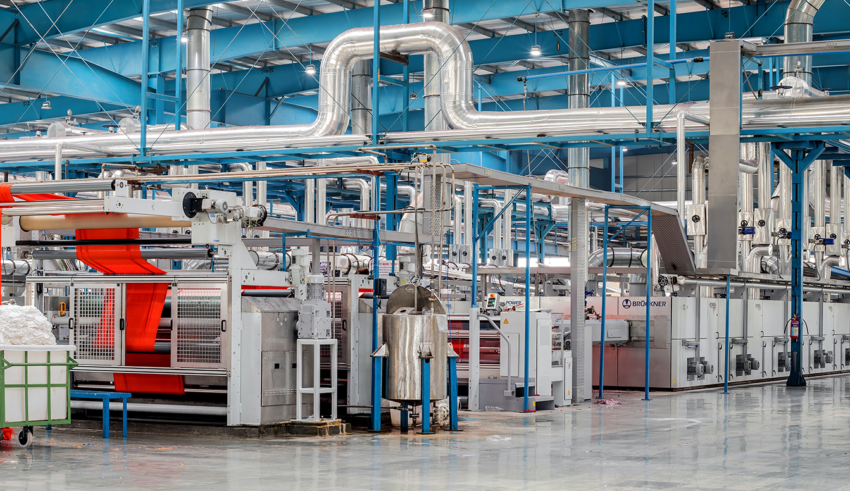PRESS RELEASES | 31/07/2024
The UK’s industrial strategy must prioritise decarbonisation to deliver growth

- New Aldersgate Group briefing highlights the crucial role of clean industry as a driver of growth and sets out the key measures that the UK’s industrial strategy must incorporate to drive decarbonisation and maximise growth.
- The briefing calls on the Government to accelerate the expansion of low-carbon industries by identifying and prioritising where the UK has existing strengths or high potential, and taking a whole-value chain approach to industrial strategy that considers raw materials, skills, and demand side measures.
- Backed by business leaders from across the economy, the publication demonstrates the private sector consensus that the UK’s industrial strategy must be rooted in decarbonisation to drive economic growth and private investment across the country.
Today, the Aldersgate Group publishes the first in a series of briefings outlining how the UK Government can deliver an effective industrial strategy with decarbonisation at its heart. As global competition to secure green investment increases, it highlights the urgent need for the UK to recapture a leadership position and create growth opportunities for domestic industry in tandem with emissions reductions.
A low-carbon industrial strategy is vital for the UK Government’s growth mission. Research commissioned by the Aldersgate Group from WPI Economics found that businesses in emerging green industrial sectors turn over £1.7bn across the UK and are expected to grow at a rate of 20% per year [1]. Conversely, inaction presents significant risk, with research finding that £224bn gross value added (GVA) could be wiped from the UK economy without policy support for industrial decarbonisation [2].
This briefing’s priority recommendations call for an industrial strategy that identifies priority value chains for growth, particularly those where the UK has existing strengths or high potential, and a whole-value chain approach that considers raw materials, skills, and demand signals. It also highlights the role of industrial strategy in sustainably growing other sectors such as financial services, AI, and life sciences, and the importance of continued business engagement.
This paper draws on the experience and expertise of major businesses across a range of industrial and manufacturing sectors. It demonstrates that the private sector recognises the immense growth potential presented by low-carbon industry in the UK.
Rachel Solomon Williams, Executive Director, Aldersgate Group, said: “Industrial strategy will play a crucial role in achieving the Government’s mission to drive consistent and sustainable economic growth across the UK. The consensus from major businesses representing a range of sectors is clear, a successful industrial strategy must have decarbonisation at its heart to maximise growth opportunities and put the economy on a strong footing for the future. The stakes are high, international competition for green investment is rising and the UK has fallen behind in recent years, without the right approach we risk missing out on a once in a generation opportunity to grow domestic industries and could endure significant economic damage through deindustrialisation. This briefing outlines what a successful low-carbon industrial strategy looks like, and how it can create a policy landscape that gives businesses the certainty they need to invest confidently, while strengthening our domestic supply chains to ensure the UK public see the benefits.”
Tim Morris, Head of Corporate Communications at Associated British Ports welcomed the report, noting: “Decarbonising our economy is not enough: we need to secure the jobs, skills and supply chains that will develop as a result of the energy transition but without clear political will and policy direction, those will be lost to our competitors overseas. This industrial strategy work from the Aldersgate Group is a welcome perspective on setting out the measures that we need, and we look forward to working with the team and the new government to take it forward together.”
Martin Casey, Director Public Affairs, Communications & Social Impact at Cemex EMEA, said: “This briefing is a thoughtful, thorough and rigorous analysis of what a successful industrial policy should be about, and gives clear guidance and suggestions to the new Government on what is needed to help secure a sustainable, decarbonised and growing economy. I commend it to them.”
Stew Horne, Head of Policy at Energy Saving Trust, said: “This Aldersgate Group report comes at a critical time as the UK Government strives to deliver clean power by 2030. Retrofitting the UKs housing stock is key to achieving this mission, reducing energy demand and lowering carbon emissions. The expected Warm Homes Plan aims to kickstart this by upgrading five million homes.
“As the Aldersgate Group highlights, a joined-up industrial strategy approach will be vital to ensure the UK Government delivers on this ambition. The retrofit supply chain must be supported to expand sufficiently if it is to meet an increase in demand. Alongside this, measures to incentivise young people into the industry as well as to reskill the existing workforce to install low carbon technologies will be crucial to ensure the industry can deliver at the pace and scale required.”
Duncan Clark, Head of UK and Ireland, Ørsted, said: “This report is incredibly timely. The global offshore wind industry is about to triple in size and if the UK gets its industrial strategy right, it will be in a position to maximise economic advantage from offshore wind projects both here in the UK and around the world. Implementing industrial strategy matters and I very much welcome the Aldersgate Group’s report on this vital subject. “
John Scanlon, Chief Executive Officer at SUEZ recycling and recovery UK, said: “SUEZ welcome this timely briefing from the Aldersgate Group, a clear industrial policy should help facilitate the delivery of net zero targets, enable significant investment in low carbon technologies and prompt new research and development. We believe that decarbonisation must not only be at the heart of a new and improved industrial strategy, but it must also underpin the development of a new economy, one that is circular and delivers resource efficient, low carbon systems and infrastructure.
“The sector is primed to invest billions in the industry’s evolution, but a lack of clear and consistent policy has undermined this investment in recent years. We ask Government for clarity, transparency and a clear timeframe for transition that will enable us to work with our partners and customers to develop the solutions of tomorrow that support economic growth, social wellbeing and environmental improvement. With this investment will come a significant number of new green jobs, making our sector and others that are decarbonising more attractive to young and emerging talent. Once the vision is clear and the policies align, we are ready to tackle the challenge of decarbonising our industry for the future health of our planet head on.”
References
[1] WPI Economics for the Aldersgate Group (2023), Economic benefits of industrial decarbonisation
[2] WPI Economics for the Aldersgate Group (2023), Economic benefits of industrial decarbonisation


